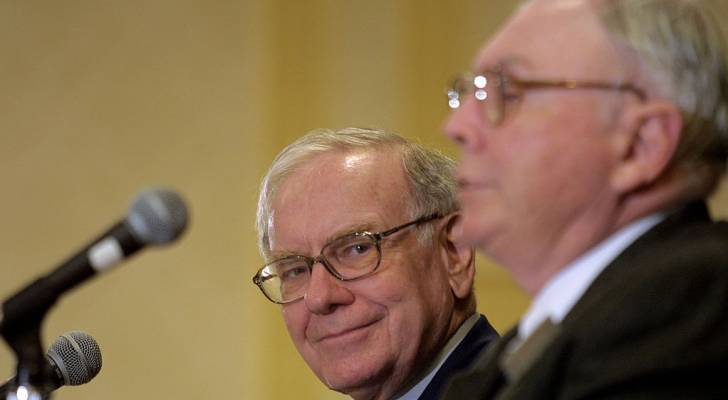Before his death, Charlie Munger warned of a storm brewing in the US real estate market — where Berkshire Hathaway will now seek refuge


One of the last market warnings Charlie Munger, Warren Buffett’s late business partner, issued revolved around commercial real estate. Munger said he saw a storm brewing in the sector that could engulf the banks and impact the broader market.
“The buildings don’t go away,” Buffett said at the May 2023 Berkshire Hathaway (NYSE:BRK.A) shareholders meeting. “But the owners do,” Munger chimed in at what was to be his last annual meeting.
Don’t miss
“I think that the hollowing out of the downtowns, in the United States and elsewhere in the world, is going to be significant and quite unpleasant,” Munger said, adding at that time that he predicted the U.S. economy will weather the storm eventually but that commercial real estate will eventually “involve a different set of owners.”
Munger’s bear case
Munger and Buffett’s concerns could be based on the fact that foot traffic near stores in metropolitan areas is 10% to 20% below pre-pandemic levels while office attendance is 30% lower than before COVID, according to a recent report by the consulting firm McKinsey. The report predicts that, because of these trends and other factors, demand for office space could still be almost 20% lower in 2030 than it was in 2019.
In October, around 28% of paid work days were work from home according to WFH Research. Of the full-time workers surveyed, 12% were completely remote while another 30% had a hybrid work model.
That’s bad news for commercial landlords. It’s worse news for their lenders. In an April interview with the Financial Times, Munger said that the U.S. banking sector was “full of … bad loans” in the commercial real estate sector. Eventually, higher interest rates, lower rental income and resulting lower property values could send some of these loans underwater — meaning that the outstanding balance will be greater than the value of the underlying properties.
However, the pain doesn’t necessarily mean opportunity for investors “Berkshire has never really been active in commercial real estate,” Munger said during a Q&A session with CNBC’s Becky Quick at the May shareholder meeting. “It works better for taxable investors than it does for corporations taxed the way Berkshire is.”
Read more: Thanks to Jeff Bezos, you can now use $100 to cash in on prime real estate — without the headache of being a landlord. Here’s how
Homebuilders
Instead of focusing on commercial real estate, Berkshire Hathaway is more actively involved in the lucrative business of residential property development, having added stakes in several homebuilders in recent months.
The portfolio now includes sizable positions in D.R. Horton (DHI), Lennar (LEN), and NVR (NVR). A potential boom in homebuilding could benefit them all.
According to the National Association of Realtors, there is a housing shortage of between 5.5 to 6.8 million units. That’s because there have been more households formed than homes built over the past decade since the Great Financial Crisis. Now that lumber prices are lower and there’s persistent demand, investors are betting on a housing boom.
Retail investors can also get involved in this space through a publicly listed homebuilder or the S&P SPDR Homebuilder ETF (XHB).
What to read next
This article provides information only and should not be construed as advice. It is provided without warranty of any kind.
